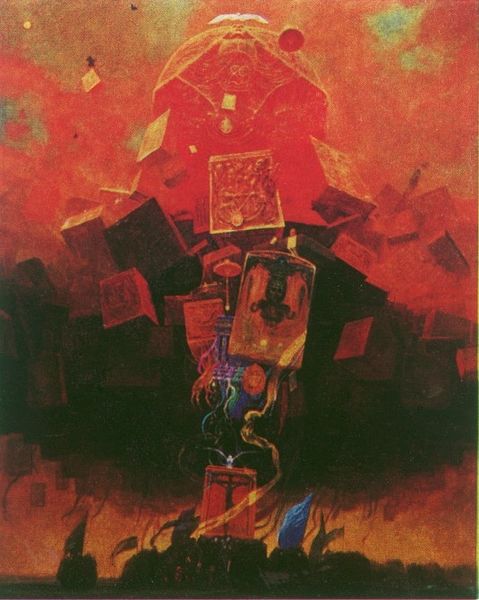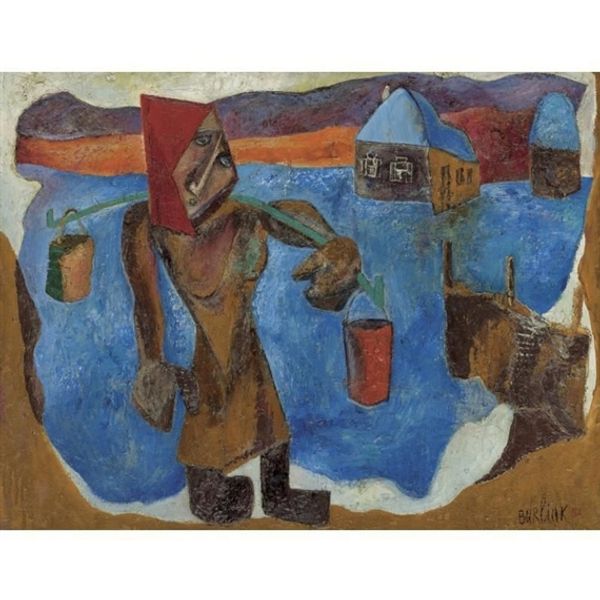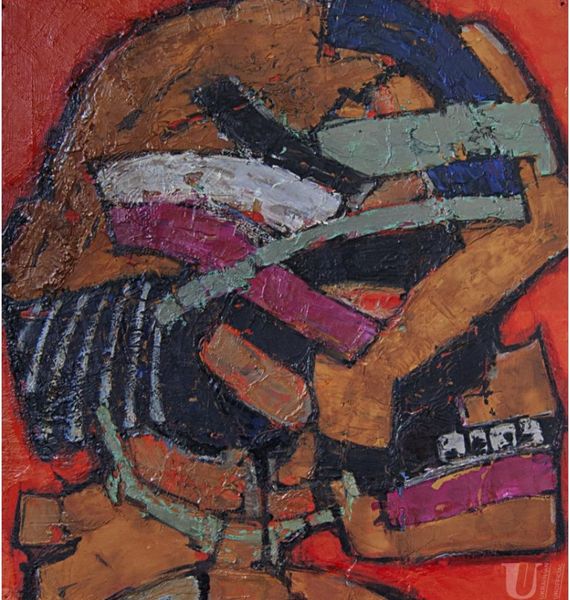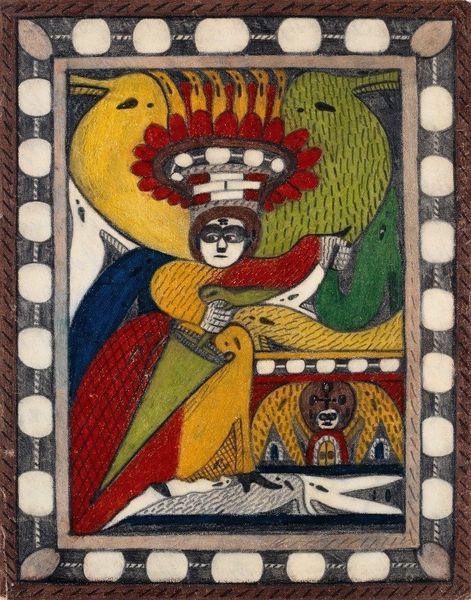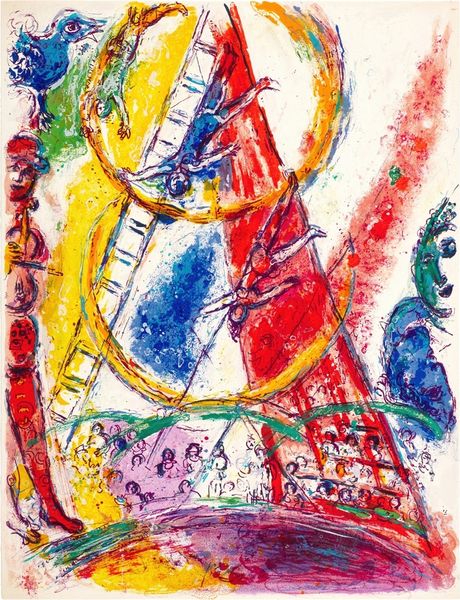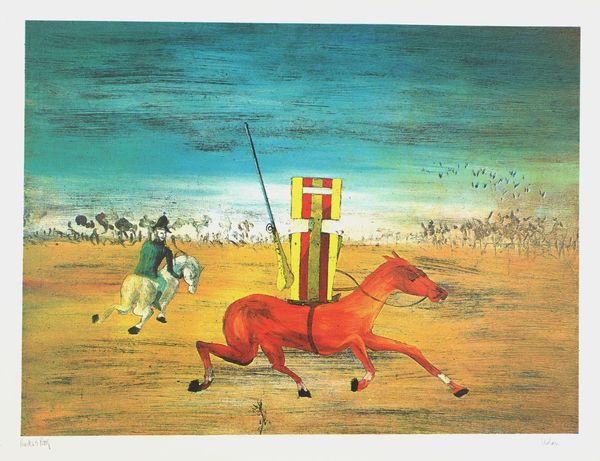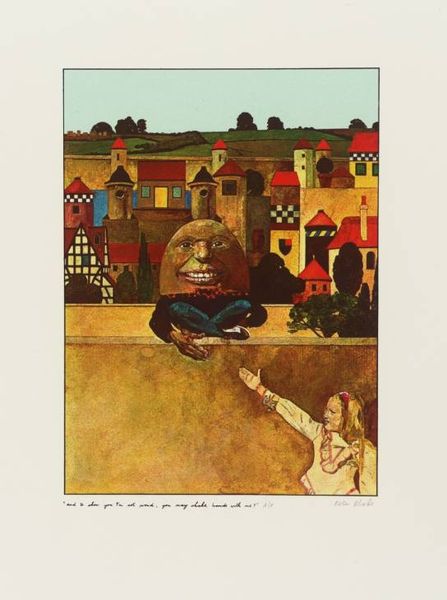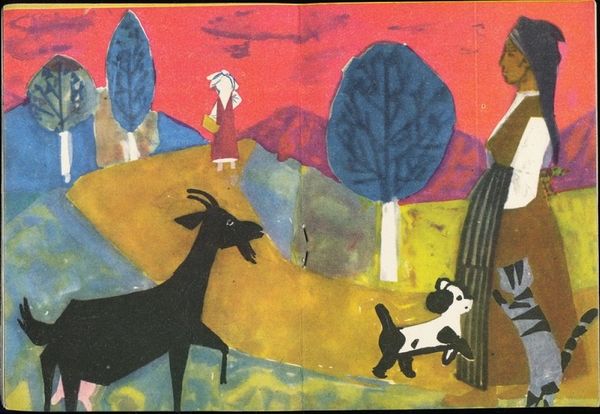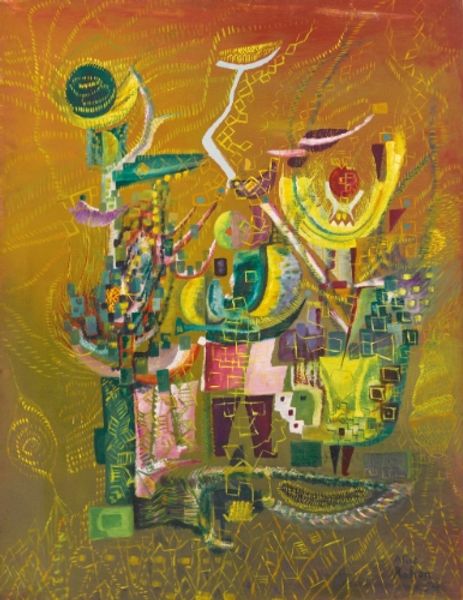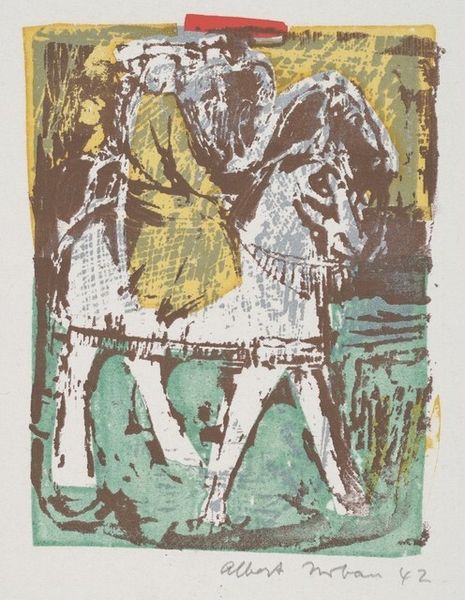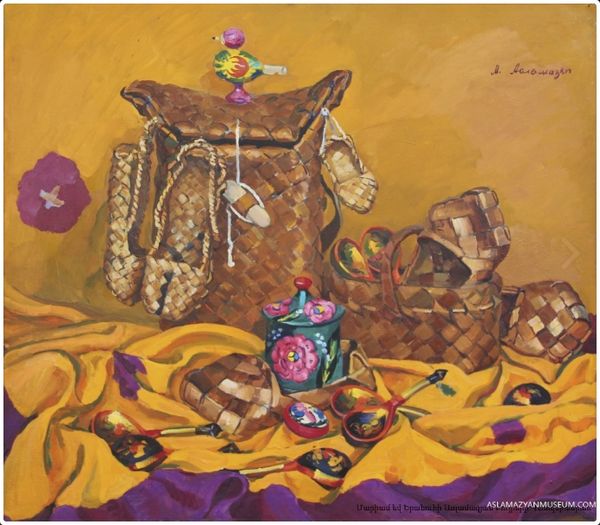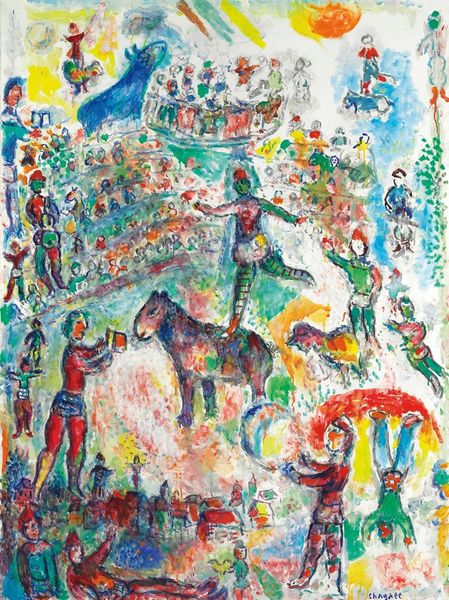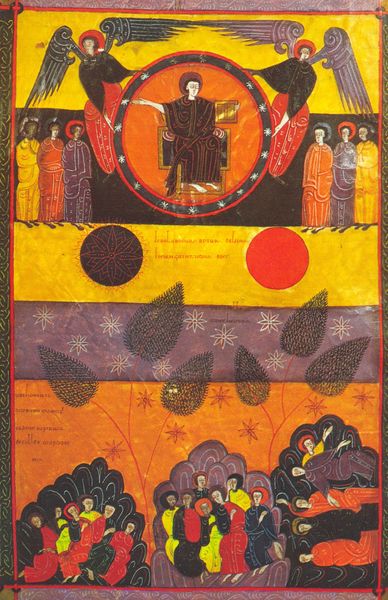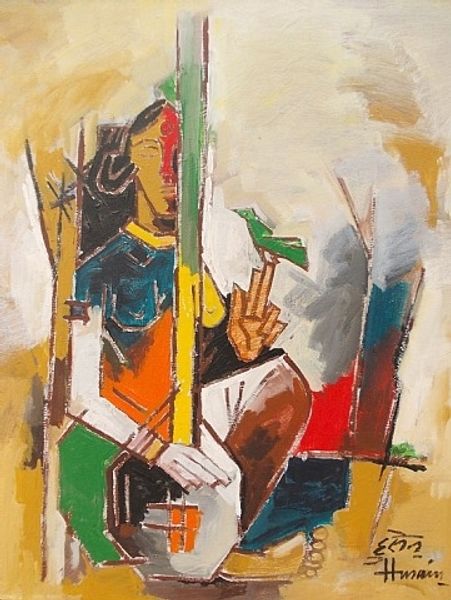
painting, acrylic-paint
#
portrait
#
narrative-art
#
painting
#
acrylic-paint
#
figuration
#
naive art
#
abstraction
#
islamic-art
Copyright: M.F. Husain,Fair Use
Curator: M.F. Husain, a prominent figure in Indian modernism, created this untitled portrait of Ibn Zainab in 1979. It’s an acrylic painting, characterized by bold colours and simplified forms. Editor: It's striking! There's a real sense of movement, though the figures are quite stylized. The warm tones are dominant, giving a kind of dreamlike or nostalgic atmosphere, would you agree? Curator: Certainly. Consider how Husain often engaged with narrative and figuration; this artwork presents a flattened perspective, which creates an interesting visual dynamic between foreground and background, but do you see any reference to history? Editor: I do. I am focusing on how that fits within a larger discussion of artistic representation of identity. It is definitely rooted in the legacy of portraiture, and it opens doors to conversations around Islamic artistic traditions that Husain continuously revisits. It invites examination into how cultural narratives intersect and evolve, what do you make of that approach? Curator: That resonates deeply. Particularly if we look at it through the lens of cultural theory, recognizing that Husain was working in a post-colonial context. His representations were quite politically charged. Editor: And not always uncontroversial either! It's crucial to understand that Husain was a figure both celebrated and criticized. The institutional display of such pieces inevitably stirs debate. How these stories are curated tells us much about prevailing cultural sensitivities. Curator: Exactly! It highlights the active role that museums and galleries play in shaping these cultural narratives. Editor: And reminds us to always consider who benefits from, and who is excluded from, that act of shaping. What else can be inferred from this perspective? Curator: For me, this painting underscores the complexities of cultural identity in a globalized world. It prompts questions about representation, cultural appropriation, and the responsibilities of artists and institutions. Editor: A thought-provoking reminder that the study of art is always the study of power, too.
Comments
No comments
Be the first to comment and join the conversation on the ultimate creative platform.
